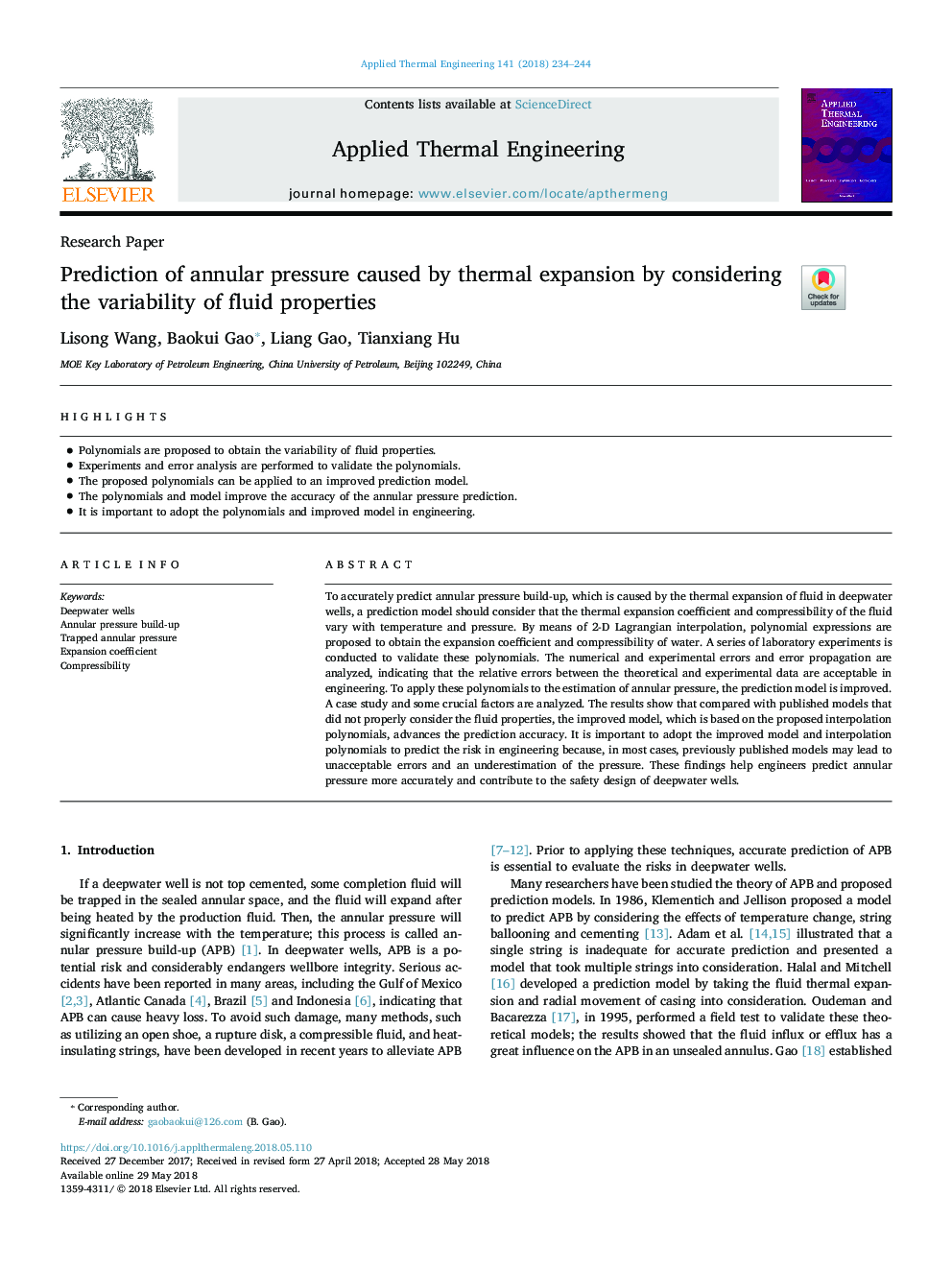| Article ID | Journal | Published Year | Pages | File Type |
|---|---|---|---|---|
| 7044922 | Applied Thermal Engineering | 2018 | 11 Pages |
Abstract
To accurately predict annular pressure build-up, which is caused by the thermal expansion of fluid in deepwater wells, a prediction model should consider that the thermal expansion coefficient and compressibility of the fluid vary with temperature and pressure. By means of 2-D Lagrangian interpolation, polynomial expressions are proposed to obtain the expansion coefficient and compressibility of water. A series of laboratory experiments is conducted to validate these polynomials. The numerical and experimental errors and error propagation are analyzed, indicating that the relative errors between the theoretical and experimental data are acceptable in engineering. To apply these polynomials to the estimation of annular pressure, the prediction model is improved. A case study and some crucial factors are analyzed. The results show that compared with published models that did not properly consider the fluid properties, the improved model, which is based on the proposed interpolation polynomials, advances the prediction accuracy. It is important to adopt the improved model and interpolation polynomials to predict the risk in engineering because, in most cases, previously published models may lead to unacceptable errors and an underestimation of the pressure. These findings help engineers predict annular pressure more accurately and contribute to the safety design of deepwater wells.
Keywords
Related Topics
Physical Sciences and Engineering
Chemical Engineering
Fluid Flow and Transfer Processes
Authors
Lisong Wang, Baokui Gao, Liang Gao, Tianxiang Hu,
